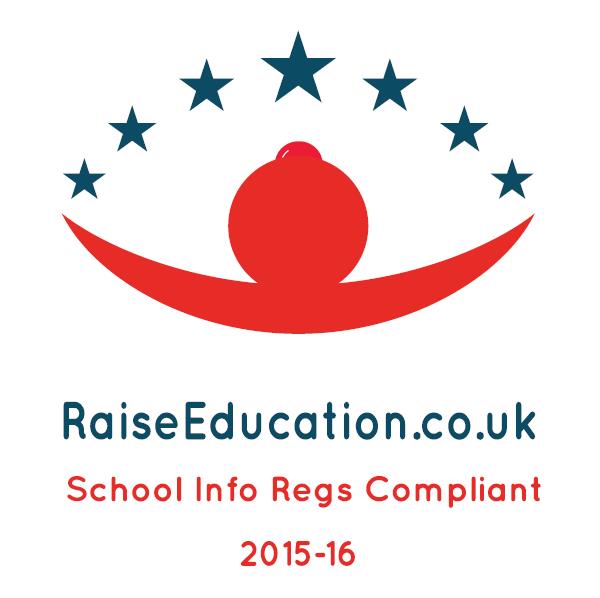Whistleblowing Policy
Contents
Introduction
-
Whistleblowing is a term used to describe disclosures made by workers which are in the public interest in relation to an alleged wrongdoing. This could include for example a criminal offence such as fraud, child abuse, a health and safety risk, an environmental risk, a miscarriage of justice, a breach of law, or a cover up of some wrongdoing. To be in the public interest, the wrongdoing disclosed must affect others, ie the general public.
-
The principles of whistleblowing and the protections offered to individuals that report such concerns are set out in the Employment Rights Act 1996, as amended by the Public Interest Disclosure Act 1998.
-
The governing body are committed to achieving the highest possible standards in the school and it is important that all staff are able to raise concerns and understand the appropriate way to do so.
-
Everyone working in the school is in a position to identify unsafe or inappropriate practice, to spot where things could be improved and identify if mistakes have been made. The leadership team and governing body cannot take action if they are not made aware of things that may be going wrong, inappropriate behaviour or even an honestly held belief that something does not feel right.
-
This policy is intended to encourage and enable staff to raise concerns within the school in order for the head teacher / governing body to respond, rather than ignoring a concern or raising concerns externally.
-
This policy sets out what workers should do if they have a concern relating to the school which they wish to report and how the governing body will respond. It was adopted by the governing body on (date).
Scope
-
All staff have a duty to report any concerns they may have about activities and/or incidents within the school. It is recognised however that in some circumstances staff may wish to report issues confidentially and/or may worry about how the school and/or other staff may respond. This policy applies to all staff in the school and provides a framework for reporting concerns in a professional manner with due protection from any reprisals or victimisation.
-
This policy does not cover personal grievances which are not in the public interest, for example allegations of bullying or discrimination. Personal grievances should instead be resolved in accordance with the school’s grievance procedure. Concerns about health and safety which do not affect the public should be reported in accordance with local procedures.
-
A concern may be about something that you sincerely believe in good faith:
-
Is unlawful
-
Is contrary to the school’s agreed policies or procedures
-
Falls below established standards or practice
-
Constitutes improper conduct or misconduct
-
Presents a health and safety risk to the public as well as other employees
-
Involves damage to the environment
-
Involves the unauthorised use of public funds
-
Involves potential fraud, corruption or financial irregularity
-
Involves actual or potential abuse of children
Or you may believe that information relating to the above has been or is likely to be deliberated concealed.
How to report a concern
-
You should make a note of your concerns with as much detail as possible, as soon as possible after the concern arises. Do not try to investigate your concerns personally and do not approach or accuse individuals directly. It is essential that appropriate reporting procedures are followed to maintain the integrity and confidentiality of any future investigation or proceedings.
-
When individuals report issues, they are making a vital contribution to the overall effectiveness of the school, the quality of education provided and the safety of the children in the school. Reporting issues allows for reflection and action to facilitate ongoing school improvement.
-
If you work in a maintained school and suspect fraud, corruption or financial irregularity, you should always inform the local authority head of anti-fraud and internal audit. S/he will then be responsible for notifying any other staff as needed.
-
For all other types of concern and in non-maintained schools, the first point of contact for any concern will normally be your line manager. If your concerns relate to your line manager, then you may instead wish to report these to the next line manager or head teacher. Concerns about the head teacher should be reported to the chair or another member of the governing body.
-
Where your concern is about the governing body, it may be raised with the local authority Head of 0-19 Standards (for maintained schools) or the Regional Commissioner (for academy and free schools). You may wish to ask your trade union representative for advice on how best to raise your concern.
-
The earlier you report your concern, the easier it will be for the school to take action. You are not expected to prove the truth of any allegations but you will need to demonstrate to the person you report to that there are sufficient grounds for your concern.
-
Concerns may be raised verbally or in writing. It is easier for the school to investigate concerns if you raise these directly as they can then ask you questions to clarify the issues raised. If you raise your concerns anonymously, the school may not be able to investigate properly if you have not provided all the information needed and will not be able to tell you the outcome.
-
It is acknowledged that sometimes you may wish to raise concerns in confidence and if so we will take all reasonable steps to protect your identity. It may not be possible to resolve your concerns without revealing your identity; for example an investigation process may reveal the source of the information and a statement from you may be required as evidence. If this is the case the school will discuss with you how best to proceed.
-
If you do not wish to report your concern directly to the school, you may wish to approach your trade union, or a prescribed person or body that deals with the issue you are raising. For example, in a community school, you may wish to report your concern to the relevant local authority officer. If you choose to report your concerns to the media, then in most cases you will lose your rights under whistleblowing legislation.
How the school will respond
-
Once you have told us your concerns, the school will identify an appropriate individual or committee to discuss your concerns with you and identify what action, if any, is needed in response. Remember that testing your concerns is not the same as accepting or rejecting them. You may be asked to provide further information.
-
The allocated individual will write to you within 10 working days of receipt of your complaint to: acknowledge receipt, indicate how they propose to deal with the matter, provide an estimate of how long it may take to provide a final response, tell you whether initial enquiries have been made and tell you whether further investigations are needed or if not why not. The allocated individual will contact you using the contact details you provided when raising your concerns, unless you have specified otherwise.
-
Community schools, where the authority is the employer, must notify the local authority monitoring officer in writing of any concerns raised under this procedure for monitoring and reporting purposes. The monitoring officer may be contacted at Southwark Council, 2nd floor, PO Box 64529, London, SE1P 5LX.
-
Any meetings with you can be held off the school site if wished. You have the right to be accompanied at such meetings by your trade union representative or a work colleague (who is not involved in the area of concern) if you so wish.
-
The allocated individual will decide the most appropriate way to deal with your concern and will keep you informed of the action they take but may not be able to provide you with detail if there is a need to keep the confidence of other people and/or proceedings. Action could include:
-
An investigation under the school’s internal procedures
-
A referral to the police
-
A referral to the child protection officer
-
A referral to internal or external audit
-
An independent inquiry
-
Any investigations will be conducted on a strictly confidential basis and the subject of your concerns will not be informed unless and until it is necessary.
-
The school will take steps to minimise any difficulty you may experience as a result of raising a concern. For example, if you are required to give evidence in formal proceedings, the school will advise you on procedure beforehand.
Escalating your concerns
-
If you are unsatisfied with the way the school has responded to your concern, or if you believe the wrongdoing is still ongoing, you may wish to escalate your concern to a more senior member of staff, the governing body or a prescribed person or body.
-
The governing body will not tolerate harassment or victimisation in response to whistleblowing and will take action to protect staff that have raised concerns in good faith. This does not mean that if you are already the subject of a disciplinary, redundancy or other procedure that those procedures will be halted as a result of your whistleblowing.
-
This policy is intended to provide you with a clear route to raise your concerns and for the school to respond to these concerns appropriately. If you feel this has not happened and you feel that it is appropriate to take the matter outside of the school then you may contact either the national audit office: This email address is being protected from spambots. You need JavaScript enabled to view it. or 020 7798 7999, or the police (if the concern relates to a potential criminal matter). Complaints to other bodies may hamper a speedy investigation into your concern.
Unfounded, unsubstantiated or malicious allegations
-
If you make an allegation in good faith, but it is not upheld or confirmed by subsequent investigation, you will not suffer any detriment and no action will be taken against you. Victimisation and/or harassment of individuals who have raised or plan to raise concerns will not be tolerated.
-
If however it appears that you have acted frivolously, maliciously or in a vexatious manner, or for personal gain, then a disciplinary investigation will be undertaken into your conduct.
-
Information which is provided to you on a confidential basis must be treated as such and this may only be overridden where there is a clear public interest in disclosing it and you act in good faith and reasonably. You would need to ensure that you could justify your disclosure because it would be a serious betrayal of trust to use confidential information for any personal advantage, or for malicious or other improper reasons.
Record keeping
-
The governing body has responsibility for the maintenance and operation of this policy. They will maintain a confidential record of any concerns raised and the outcomes (so as not to endanger your confidentiality).
Advice and guidance
-
Further advice and guidance on how a matter may be pursued under this policy is available from your human resources advisers.



















